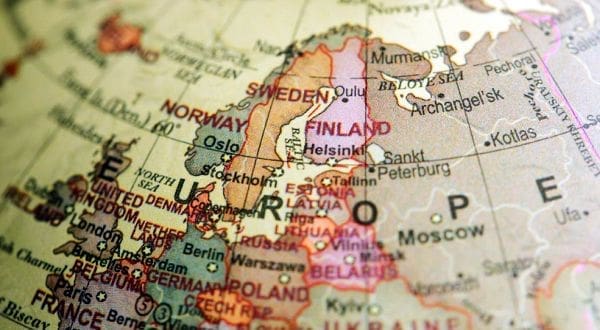Copyright pakobserver

CHIEF Minister Punjab Maryam Nawaz Sharif stands today as one of the most eloquent and compassionate advocates for the oppressed people of Indian Illegally Occupied Jammu and Kashmir (IIOJK). Her empathy, conviction, and moral courage reflect both the legacy of Pakistan’s democratic struggle and her family’s deep-rooted commitment to justice and human dignity. As Kashmir Black Day is observed on 27th October 2025, Maryam Nawaz’s leadership once again embodies Pakistan’s unwavering solidarity with the Kashmiri people in their just and heroic struggle for self-determination. Maryam Nawaz’s vision for Kashmir is not confined to rhetoric or symbolic gestures; it stems from a profound sense of shared pain and purpose. For her, Kashmir is not merely a political issue—it is a humanitarian cause that tests the conscience of every Pakistani. She has repeatedly emphasized that the wounds of the Kashmiri people are felt deeply in the hearts of all Pakistanis, and that the unbreakable bond between Pakistan and Kashmir is founded on faith, history, and a collective dream of freedom. Kashmir Black Day marks one of the darkest moments in the subcontinent’s history. On 27th October 1947, Indian forces invaded Jammu and Kashmir in violation of the principles of partition and the aspirations of its people. What began as an illegal occupation has turned into decades of systematic oppression, marked by human rights abuses, mass detentions, communication blackouts, and demographic manipulation. Yet, the indomitable spirit of the Kashmiri people continues to defy every attempt to silence them. Each year, this day is observed across Pakistan and the world as a reminder that the struggle for Kashmir’s freedom is not forgotten. Maryam Nawaz Sharif represents a new generation of Pakistan’s leadership, one that approaches the Kashmir cause with renewed energy, empathy, and clarity. She views the issue as a moral and humanitarian test for the international community, a call for conscience, not just diplomacy. Her leadership urges the United Nations, global powers, and human rights defenders to acknowledge that silence in the face of oppression is complicity. In her political journey, Maryam Nawaz has consistently kept the Kashmir cause close to her heart. As Chief Minister, she has worked to translate solidarity into meaningful public engagement. Under her guidance, the Punjab government has observed Kashmir Solidarity Day and Kashmir Black Day with exceptional vigor and inclusivity. Schools, universities, public offices, and cultural institutions have been encouraged to participate in discussions, exhibitions, and awareness campaigns to keep the plight of the Kashmiri people alive in public consciousness. Her approach combines emotional resonance with strategic foresight. Through media initiatives, youth engagement, and collaboration with civil society, Maryam Nawaz has ensured that the cause of Kashmir remains a living moral commitment, not a ceremonial tradition. She has also encouraged academic forums and artistic circles to highlight the voices, resilience, and sacrifices of the Kashmiri people, ensuring that the younger generation of Pakistanis continues to understand and advocate for the freedom of their Kashmiri brothers and sisters. Maryam Nawaz Sharif’s stance on Kashmir is marked by moral clarity and diplomatic wisdom. She consistently reiterates that peace in South Asia cannot be achieved without a just and peaceful resolution of the Kashmir dispute in accordance with UN Security Council resolutions and the aspirations of the Kashmiri people. Her belief in dialogue, rooted in justice, distinguishes her leadership—acknowledging that sustainable peace can never emerge from suppression and silence. In the face of India’s extremist Hindutva regime, the situation in Kashmir has become increasingly dire. Since August 5, 2019, when India unilaterally revoked Articles 370 and 35A, the region has been reduced to the world’s largest militarized zone. Kashmir’s identity, culture, and demography are under existential threat. Yet, despite these oppressive measures, the spirit of resistance remains unbroken. Maryam Nawaz continues to denounce these injustices with moral strength and political conviction. She calls out India’s actions as state-sponsored terrorism and a grave violation of international law. To her, the tragedy of Kashmir is not India’s “internal matter” it is a global humanitarian crisis that demands urgent international intervention. Her consistent advocacy reinforces Pakistan’s principled stance that the struggle of Kashmiris is not terrorism—it is a fight for freedom and dignity. At the same time, Maryam Nawaz remains deeply hopeful. She believes that the sacrifices of the Kashmiri people will not go in vain and that the dawn of justice will inevitably rise over the valley. Her vision for Pakistan’s role is both strategic and compassionate to amplify the voices of Kashmiris worldwide, mobilize diplomatic channels, and rekindle the world’s conscience to the unfulfilled promises made to them. For Maryam Nawaz, youth are at the heart of this struggle. She envisions a generation of informed, engaged, and morally awakened young Pakistanis who carry the message of Kashmir’s freedom into every sphere from campuses to communities, and from national debates to international platforms. Her leadership style empathetic, modern, and people-centric gives Pakistan’s stance a renewed emotional and moral depth. Today, as Pakistan prepares to mark Kashmir Black Day 2025, Maryam Nawaz Sharif’s voice continues to echo with resolve and compassion. Her leadership reminds the world that Kashmir is not forgotten, and that Pakistan stands as the steadfast guardian of its people’s right to freedom. She has reignited the emotional connection between Punjab and Kashmir, binding both through shared sacrifice, faith, and hope. In her words and actions, the Kashmiri people find a voice that refuses to fade a leader who carries their pain in her heart and their cause in her conscience. Maryam Nawaz Sharif’s moral conviction serves as a beacon of hope for a region yearning for justice and peace. As Pakistan observes this 27th October, it does so with renewed determination, guided by a leader who understands that freedom movements are not sustained by force but by faith, perseverance, and moral truth. The path to justice may be long, but as Maryam Nawaz often reminds, “The courage of Kashmir will outlast oppression, and the dawn of freedom will rise over the valley.” On this Kashmir Black Day, Pakistan stands united with the brave people of Kashmir their pain is our pain, their struggle, our struggle, and their freedom, our unshakable promise.



